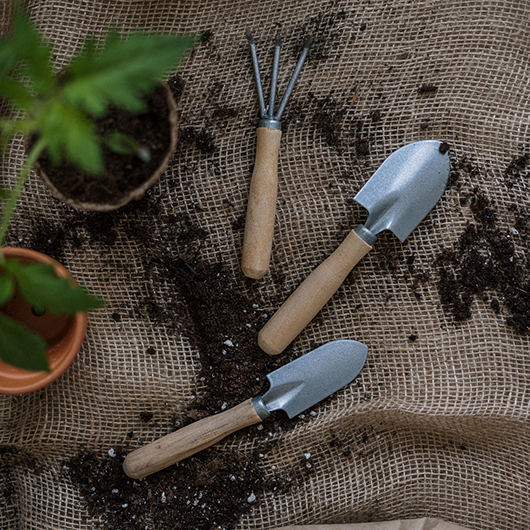
The energy experts at money.co.uk have researched and revealed seven tips for cutting down on plastics in the garden.
They suggest using terracotta pots instead of plastic ones and using biodegradable seed trays to help reduce plastic use.
Gardening can generate a lot of plastic waste as it’s found in almost every aspect of the hobby. Whether it be seed trays, plant pots, compost bags, plastic labels, plastic cloches, or propagators, we are all surrounded by it in our gardens.
Unfortunately, a lot of this plastic won’t make it into the recycling bin, and it can take hundreds of years to degrade.
It’s easier than you think to start making the switch and reduce your plastic use going forward, and many companies now sell pots, fencing and furniture made from recycled wood and plastic.
Ben Gallizzi, an energy expert at money.co.uk said: “As a country, we should be doing all we can to bring our plastic consumption down.
“Plastic is extremely useful in the garden because it’s light, flexible and durable against the elements. In most gardens, the use of plastic is widespread. But if you reuse where possible, and question every bit of plastic that comes into your garden, you should be able to reduce your single-use plastic consumption outdoors.
“We should all buy recycled plastic or biodegradable products where we can.”
Here are money.co.uk’s tips on how to reduce plastic waste in your garden.
-
Use terracotta pots instead of plastic ones
Terracotta pots are more environmentally friendly than plastic alternatives, as they are more porous and able to break down over time quicker than plastic.
If you are going to use plastic pots, then we’d recommend sourcing ones made out of recycled plastic.
You can also upcycle broken pots, and just because they’re broken doesn’t mean they can’t still be used, so why not embrace the imperfections? Plant pot shards are easy to repurpose - for example, you can place them in larger pots to protect the soil from unwelcome pests.
-
Use biodegradable seed trays and pots
Garden centres and homeware stores will have racks of plastic seed trays with clear plastic lids and they’re usually cheap too – but this doesn’t mean you should buy them. Egg boxes work just as well, and so do shallow cardboard boxes. Loo rolls also make excellent starting seed pods for larger seeds and tall plants like broad beans, runner beans and sunflowers.
-
Make your own potting compost
By starting your own compost heap, you won’t have to buy plastic bags of it. You could use shredded paper, stale food, coffee grounds and more to help create your own compost.
-
Check all gardening accessories
When buying plants, check that the plants are wrapped in paper materials and not plastic. Read the small print to check when buying online.
Laminated or sticky labels are often used in the garden to help identify plants, but wooden lollipop sticks or writing on old shards of terracotta pots can be used to create handy plant labels.
It’s also good practice to use natural twine to tie back your plants and this is 100% biodegradable.
-
Make your own plant feed and bug repellents
To save buying more plastic bottles for insect repellent, you should think about making homemade garden sprays. These can be made out of things you probably already have in the house, such as dish soap, cooking oil, garlic and vinegar. A homemade formula made from vegetable oil mixed with a mild soap can help repel troublesome insects.
-
Use a metal watering can
This is a pretty obvious one, but a metal watering can might last a lifetime, whereas plastic cans tend to be cheaper and are generally not that durable.
-
Use metal or wooden tools
Next time you have to purchase new garden tools, consider metal or wood ones instead of plastic. They might be more expensive, but they’ll likely last longer and will prevent you from having to throw more plastic away in the long run.